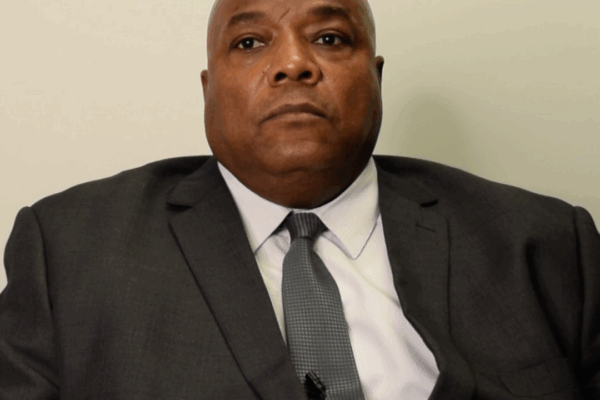Four Amicus Briefs Condemn Prosecution Based on History of Racism, Prosecutorial Misconduct, and Witness Intimidation
POCOMOKE CITY, MD – In four powerful amicus briefs castigating the State of Maryland’s biased criminal prosecution of the first Black police chief in a small town on the Eastern Shore where there is a centuries-long history of racial animus, a group of Pocomoke City residents, civil rights, and police groups detail the backdrop of this disturbing case and condemn the targeted prosecution of Kelvin Sewell. The amicus briefs were filed in Sewell v. State of Maryland, which is on appeal before the Maryland Court of Special Appeals.
The history amicus brief was filed by Citizens for a Better Pocomoke, Pocomoke City Councilwoman Diane Downing, Worcester County Branch of the NAACP, the Caucus of African American Leaders, and the Public Justice Center. The biased prosecution amicus brief was filed by the United Black Police Officers’ Association, the Hispanic National Law Enforcement Association, and the American Civil Liberties Union of Maryland. The prosecutorial misconduct amicus brief was filed by the Howard University School of Law Civil Rights Clinic. And the witness intimidation amicus brief was filed by the Washington Lawyers’ Committee for Civil Rights and Urban Affairs.
The history amicus brief details how the groups see this prosecution as an outgrowth of longstanding practices on the Eastern Shore of denying blatant race discrimination, holding Black residents to a higher standard than their white counterparts, and punishing those who resist white officials’ abuse of authority. In the longstanding tradition of the Shore, white officials confronted with allegations of race discrimination were personally aggrieved, acknowledged no responsibility for a police culture in which the most offensive racial slurs are tossed about without consequence, and failed to address the underlying concerns. Rather, they launched a counterattack, using all resources at their disposal, until they cooked up something that stuck, even against one of the most well-liked and successful police chiefs in the Eastern Shore’s “friendliest town.”
Opening with a famous quote by Supreme Court Justice Robert Jackson, the biased prosecution amicus brief warns about the injustice inherent when prosecutors use their power to target someone held in disfavor, then go searching for a “crime.” The groups see Justice Jackson’s warning realized in state prosecutors’ unrelenting pursuit of Sewell: searching for wrongdoing after Sewell was flagged by white officials aggrieved by his complaints about racism in Worcester law enforcement ranks. Submitted by groups representing Black and Latinx police officials, the brief urges readers to try walking in the shoes of Officers of Color like Sewell, fighting racism from inside law enforcement in violation of the notorious “Blue Wall of Silence.”
The prosecutorial misconduct amicus brief details how – long before he became the subject of biased prosecution himself – Sewell contacted the Office of the State Prosecutor seeking an investigation of threats and harassment directed towards Black officers in Worcester County. Instead of pursuing that serious problem, the OSP launched a campaign to find anything Sewell did that could be classified as misconduct. Prosecutors tried to dig up wrongdoing, but all of the allegations were eventually proven false, until the Worcester County State’s Attorney prodded them to investigate the 2014 traffic accident. The unusual nature of OSP’s decision to pursue charges against Mr. Sewell is further highlighted by the fact that OSP has almost never pursued misconduct charges against police officers – and never against police chiefs.
The witness intimidation amicus brief argues that the conviction must be reversed because prosecutors intimidated a key defense witness, Kedrick Scribner, into refusing to testify. Scribner had been present when Tanya Barnes – who had been an officer with the Pocomoke City Police Department when Sewell was chief – admitted to Sewell that she had lied in her testimony against him at trial because prosecutors had threatened to press charges against her if she did not. Scribner submitted an affidavit in defense of Sewell in which he recounted what Barnes had said: “I’m not going to let [the investigators] make me lie again. You’re a good Chief, and you treated me good.” However, when called by the State to testify before a grand jury, prosecutors intimidated Scribner into remaining silent about what he heard from Barnes. Such tactics by state prosecutors are unethical and unacceptable.
Notably, in a 2018 decision, Court of Special Appeals Judge Daniel Friedman cautioned that the evidence of wrongdoing against Sewell was so completely inadequate that the case should have been dismissed outright. In Judge Friedman’s ruling, he wrote: “The right to a fair trial is enshrined in our laws. Under the circumstances presented in this case, the risk of unfairness is intolerably high”.
Overall, there continues to be strong support for Chief Sewell, particularly in Pocomoke’s Black community. Many see how this biased prosecution has been destructive to race relations in the Pocomoke community, exacerbating preexisting racial tensions, and reigniting fears of law enforcement in the Black community that Sewell had worked so effectively to overcome during his time as Chief.
###
Related Content

Lawsuit Challenges Race Discrimination and Retaliation Against Black Police Officers in Pocomoke
Stay Informed
Sign up to be the first to hear about how to take action.
By completing this form, I agree to receive occasional emails per the terms of the ACLU’s privacy statement.
By completing this form, I agree to receive occasional emails per the terms of the ACLU’s privacy statement.

